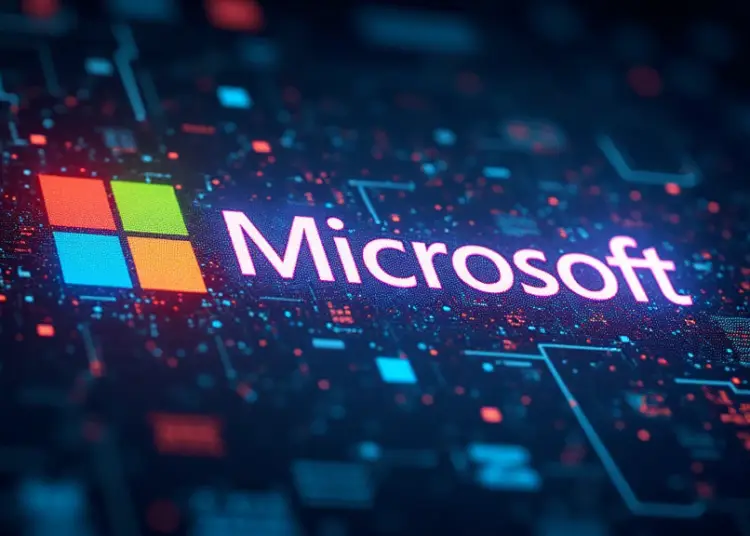Microsoft AI talent retention is becoming a critical focus as the tech giant seeks to secure its competitive edge in the rapidly evolving landscape of artificial intelligence. With the surge in demand for AI skills, Microsoft has devised innovative AI talent retention strategies aimed at keeping their top engineers on board. The company is not just offering competitive salaries; it’s also introducing attractive Microsoft employee bonuses that underscore the value placed on AI expertise. Managers are now tasked with identifying irreplaceable employees and justifying their retention with compelling reasons, reflecting the heightened stakes in retaining AI employees. As the industry races to harness AI capabilities, Microsoft is committed to ensuring that it retains the best talent to drive its initiatives forward.
In the realm of technology, the retention of skilled professionals in artificial intelligence is crucial for companies aiming to thrive in a competitive market. Microsoft has recognized the importance of safeguarding its most valuable assets – AI specialists – through strategic initiatives designed to keep them engaged and satisfied. With the escalating demand for expertise in AI, organizations are not only competing for talent but also scrambling to implement robust employee retention programs. The emphasis on attractive compensation packages, including enhanced Microsoft employee salaries and bonuses, highlights the company’s commitment to its workforce. As firms like Microsoft navigate this landscape, the challenge of retaining AI talent becomes ever more pivotal to their success.
Microsoft’s AI Talent Retention Strategies
Microsoft’s approach to retaining AI talent is multifaceted and strategic, focusing on what they deem irreplaceable employees. The company has implemented a system where managers can advocate for retention bonuses for these critical individuals. This process involves a detailed assessment of how an employee’s departure could adversely affect the company’s AI initiatives, reflecting the high stakes in retaining top-tier AI professionals. The emphasis on AI talent retention strategies indicates a broader recognition of the unique skills required in the tech landscape, where expertise in artificial intelligence is becoming increasingly vital.
Moreover, the customized nature of the retention forms allows different teams within Microsoft to tailor their strategies according to their specific needs. This flexibility not only helps in identifying key AI talent but also ensures that the retention measures align closely with the overall goals of the organization. By directly tying employee value to the company’s AI ambitions, Microsoft is setting a precedent that could redefine how tech companies approach talent retention in the era of AI.
The Importance of Employee Bonuses in AI Retention
Employee bonuses play a crucial role in talent retention, particularly in the high-demand field of AI. Microsoft has recognized that competitive compensation packages, including substantial bonuses, are essential for keeping their best AI engineers in-house. As competition intensifies with companies like Google and OpenAI vying for the same talent pool, offering attractive financial incentives becomes a key strategy in retaining AI employees. This approach not only helps secure skilled professionals but also signals the company’s commitment to valuing their contributions.
Furthermore, the significantly higher salaries for AI personnel compared to their peers illustrate the premium placed on these skills within Microsoft. By investing in employee bonuses and salaries, Microsoft is not just looking to retain employees but also to foster a culture where AI talent feels appreciated and motivated to innovate. This, in turn, leads to better productivity and a stronger competitive edge in the rapidly evolving AI landscape.
Navigating the High Demand for AI Skills
The current landscape for AI skills is characterized by intense competition and escalating demand. As businesses increasingly rely on artificial intelligence to drive innovation, the need for skilled professionals has surged. Companies are not only focused on hiring top talent but are also strategizing on how to keep them engaged and loyal to the organization. Microsoft’s retention strategies highlight the importance of understanding the unique value that AI experts bring to the table, which is crucial in navigating this high demand.
In light of this, organizations must prioritize developing a robust culture that supports continuous learning and career growth for their AI employees. This may include offering professional development opportunities, mentorship programs, and a clear pathway for advancement. By ensuring that AI talent has the resources and support they need, companies can better position themselves to retain these valuable individuals amidst fierce market competition.
Understanding Microsoft’s Competitive Salary Structure
Salary structures play a pivotal role in talent retention, especially within specialized fields like AI. Microsoft’s decision to offer significantly higher salaries to AI engineers than to their software engineering counterparts underscores the company’s recognition of the value these professionals bring. By aligning compensation with the market demand for AI skills, Microsoft not only attracts top talent but also reduces the likelihood of turnover, which can be costly both financially and strategically.
Additionally, the competitive salary framework serves as a motivational tool for AI employees, encouraging them to remain with the company and contribute to its ongoing projects. As the tech industry evolves and the demand for AI expertise continues to grow, Microsoft’s commitment to providing attractive salaries is a clear indicator of their long-term strategy to maintain a leading position in the AI sector.
The Role of AI in Shaping Future Employment Trends
As AI continues to transform the technology landscape, it is also reshaping employment trends across various sectors. The demand for skilled AI professionals is not just a temporary phenomenon; it represents a fundamental shift in how businesses operate and innovate. Companies like Microsoft are at the forefront of this transformation, actively seeking to cultivate a workforce equipped with the necessary AI skills to thrive in this new environment.
In this context, organizations must adapt their hiring and retention strategies to meet the evolving needs of the market. This includes not only offering competitive salaries and bonuses but also investing in training and development programs that enhance employees’ AI capabilities. By fostering an environment of continuous learning and adaptation, companies can ensure they are well-prepared to harness the full potential of AI in their operations.
Creating a Culture of Innovation in AI Teams
Fostering a culture of innovation is essential for retaining top AI talent and driving the success of AI initiatives. Microsoft recognizes that to keep their elite group of AI professionals engaged, they must create an environment that encourages creativity and experimentation. By empowering teams to explore new ideas and technologies, Microsoft can sustain high levels of motivation and job satisfaction among its AI employees.
Moreover, cultivating such a culture not only helps in retaining talent but also attracts new skilled professionals looking for dynamic and forward-thinking workplaces. Companies that prioritize innovation are more likely to stand out in the competitive job market, ensuring they have access to the best and brightest minds in AI. This strategic focus on innovation is integral to maintaining a competitive edge in the rapidly advancing field of artificial intelligence.
The Impact of AI Talent on Company Success
The success of a technology company increasingly hinges on its ability to attract and retain top AI talent. Employees with specialized skills in artificial intelligence drive innovation, enhance operational efficiency, and contribute to the development of cutting-edge products and services. Microsoft understands that losing key AI professionals could have significant repercussions, impacting not just current projects but also the long-term strategic vision of the company.
Therefore, the emphasis on AI talent retention strategies is not merely about keeping employees; it’s about safeguarding the company’s future. By investing in retention bonuses, competitive salaries, and fostering a culture of innovation, Microsoft ensures that it remains a leader in the tech industry. The ability to retain AI talent directly correlates with the company’s capacity to innovate and maintain its competitive advantage.
Future-Proofing Careers Through AI Skill Development
As the demand for AI skills grows, professionals in the tech industry must consider future-proofing their careers through continuous learning and skill development. Microsoft’s proactive approach to retaining AI talent serves as a reminder of the importance of adapting to industry changes and investing in personal growth. Employees looking to thrive in the AI landscape should seek out opportunities to enhance their skills, whether through formal education, online courses, or hands-on projects.
By proactively developing AI competencies, employees can position themselves as valuable assets within their organizations, making them less likely to be overlooked in the competitive job market. Moreover, companies that prioritize employee training and development are better equipped to retain top talent, as they demonstrate a commitment to their workforce’s growth and success. This mutually beneficial relationship is essential for navigating the evolving landscape of artificial intelligence.
The Long-Term Vision for AI at Microsoft
Microsoft’s strategic vision for AI is not just about immediate gains; it’s about long-term sustainability and leadership in the industry. The company’s investment in retaining AI talent underscores a commitment to building a robust workforce capable of driving future innovations. By recognizing the unique contributions of AI professionals and addressing their needs through competitive compensation and a supportive culture, Microsoft aims to position itself at the forefront of the AI revolution.
Looking ahead, the emphasis on AI talent retention will likely become a defining feature of Microsoft’s operational strategy. As the tech landscape continues to evolve, the company’s ability to attract and keep skilled AI professionals will be crucial in maintaining its competitive edge. This long-term vision ensures that Microsoft not only meets current challenges but is also prepared for the opportunities and transformations that lie ahead in the realm of artificial intelligence.
Frequently Asked Questions
What are the key AI talent retention strategies being implemented at Microsoft?
Microsoft is focusing on targeted retention strategies for AI talent, which include offering retention bonuses for employees deemed irreplaceable and emphasizing the critical role of AI experts in the company’s future. This approach not only aims to retain AI employees but also enhances job satisfaction and loyalty among top talent.
How does Microsoft use employee bonuses in their AI talent retention efforts?
Microsoft utilizes employee bonuses as a key component of their AI talent retention efforts. Managers can request retention bonuses for critical AI talent, thereby incentivizing top performers to remain with the company and mitigating the risk of losing valuable AI skills.
Why is retaining AI employees crucial for Microsoft?
Retaining AI employees is crucial for Microsoft due to the high demand for AI skills in the tech industry. Losing skilled AI engineers can lead to significant setbacks in AI initiatives, impacting the company’s competitive edge in the rapidly evolving AI landscape.
What role do salaries play in Microsoft’s AI talent retention strategy?
Salaries play a significant role in Microsoft’s AI talent retention strategy, with AI employees reportedly earning 48% more than their counterparts in other software engineering roles. This salary differential reflects the high value placed on AI skills and helps attract and retain top talent in this competitive field.
How does Microsoft determine which AI talent to prioritize for retention?
Microsoft determines which AI talent to prioritize for retention by assessing the impact of an employee’s departure on the company’s AI initiatives. Managers fill out forms that evaluate the criticality of the employee’s role, ensuring that the most vital AI talent is recognized and retained.
What are the broader implications of Microsoft’s focus on AI talent retention?
The broader implications of Microsoft’s focus on AI talent retention include setting a standard in the tech industry for how to value and maintain critical AI skills within organizations. As competition for AI talent intensifies, Microsoft’s strategies may influence other companies to adopt similar approaches to safeguard their AI capabilities.
What is the significance of the updated retention forms for AI talent at Microsoft?
The updated retention forms for AI talent at Microsoft signify a strategic commitment to preserving key AI skills within the organization. By including specific questions about AI talent, Microsoft illustrates the importance of retaining top engineers to navigate the challenges and opportunities presented by the AI revolution.
How can AI professionals enhance their skillsets to improve retention prospects at Microsoft?
AI professionals can enhance their skillsets by focusing on developing expertise in advanced machine learning, generative AI tools, and other emerging technologies. Continuous learning and adapting to industry trends will not only increase their value within Microsoft but also improve their overall job security in a competitive landscape.
| Key Point | Details |
|---|---|
| Retention Bonuses | Managers can request bonuses for irreplaceable employees, emphasizing AI talent. |
| Critical AI Talent Identification | Forms include questions to identify how crucial an AI employee is to the company’s success. |
| Competitive Salaries | AI engineers earn 48% more than average software engineers at Microsoft. |
| Customization of Retention Forms | Retention forms are tailored by different teams, but AI-focused questions indicate a trend. |
| Industry Demand for AI Talent | Companies are competing fiercely for AI talent, making retention crucial. |
Summary
Microsoft AI talent retention is a critical focus for the company as it navigates the competitive landscape of artificial intelligence. By implementing a strategy that includes retention bonuses and identifying critical AI employees, Microsoft demonstrates its commitment to keeping top talent within its ranks. As AI continues to transform the tech sector, the company’s approach to retaining skilled professionals is essential for maintaining its competitive edge.












